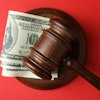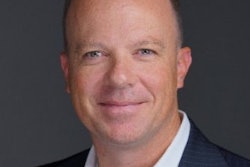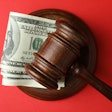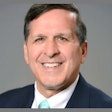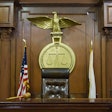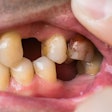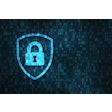
"Our purpose is to cultivate and empower a culture that fosters opportunity, inspiration, creativity, empathy, and communication to make our people the best they can be. We strive by learning, improving, and networking to become the top industry professionals in insurance billing, appealing claims, collecting patient portion, and other services related to saving dental practices and making them solvent again."
Today, as I read my company mission statement, I wonder if I should reword it to reflect the challenges we faced as an industry during the COVID-19 pandemic. The crisis challenged us in ways we never imagined, and we all are striving to keep improving despite the pain of forced changes and profound loss.
 Dr. James V. Anderson.
Dr. James V. Anderson.The pandemic made clear that the culture of leadership today must encompass compassion, safety, and resiliency. In the wake of a global crisis, leaders must take responsibility for helping communities stay informed and safe. By assuming this responsibility, leaders also model personal vulnerability.
A responsible leader also exhibits steadfastness and resilience. Leaders are in this for the long term, and they can be relied on to persevere on behalf of their communities.
For followers to trust their leaders, leaders should provide objective information and create an environment where followers can speak up about the concerns they have and ask questions. Being open and transparent are the two critical behaviors leaders can embody to earn and maintain the trust of their communities. A responsible leader is also easily accessible, available, honest, willing to answer questions, and one who provides credible, up-to-date information for people to consider.
The dental industry had to demonstrate these skills during the pandemic. It was up to us as dental care providers to show that we are essential to the health of the U.S. and the world.
Last fall, at the beginning of the pandemic, the World Health Organization (WHO) advised dentists to stop routine, nonessential care, including checkups, dental cleanings, and preventive services. WHO's guidance "angered dentists," according to a news article by USA Today.
"The ADA said it 'respectfully yet strongly disagrees' with the WHO's guidance, pointing to numerous safety measures dentists have set up to reduce the risk of transmission, steps advised by the Centers for Disease Control and Prevention," the article stated.
The business of dentistry had a difficult time adjusting to patients not being in the treatment chair as usual. The industry had to ask and answer numerous complicated questions, such as:
- What is the best way to serve the patient?
- Does the patient have an emergency?
- Is teledentistry the right solution to assess a patient remotely?
Further, there were staffing issues. Dentists who were ahead of the game hired motivated, dedicated staff who stepped up and did the right thing. Leaders who rose to the challenge were able to give their teams renewed purpose instead of a pink slip, demonstrating trust and resiliency that things would get better.
The COVID-19 pandemic is not over yet. To get through the pandemic and come out on the other side, we need more robust, more compassionate, more empathetic, and more resilient leadership. It is not only inspirational -- it also empowers our culture to make people the best that they can be.
Dr. James V. Anderson is a practicing dentist in Syracuse, UT, and is the CEO and founder of eAssist Dental Solutions. He can be reached via email.
The comments and observations expressed herein do not necessarily reflect the opinions of DrBicuspid.com, nor should they be construed as an endorsement or admonishment of any particular idea, vendor, or organization.



